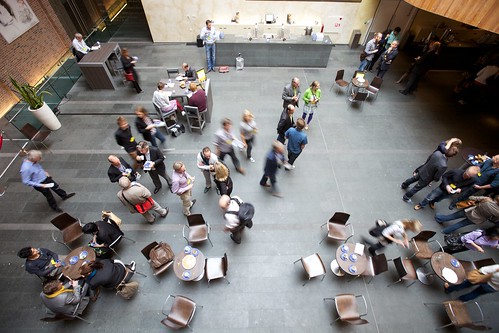It's almost time to pack my bags and head for EDEN 2013 in Oslo (close to home this time!). The lead up to conferences is usually rather stressful as I try to clear as much of my desk as possible before leaving and I also realise that I haven't really had a look at the conference programme (well there should be plenty time on the train trip to Oslo for that sort of thing). Conference organisers make admirable efforts to extend the conference's window of attention by arranging all sorts of discussions, webinars, previews and follow-up but it's tough to compete with participants' everyday work that must always take precedence.
I've been thinking how conferences are changing to reflect the changes in progress within education. Ten years ago I would go to a conference like this knowing only a handful of delegates, probably from my own country. I might meet interesting people from other countries but the chances were that apart from the odd e-mail our contact would be sporadic. Now I know almost half of the participants by following them on Twitter, Facebook or LinkedIn, reading their blogs, seeing them in webinars or participating in a project together. It's always fun to finally meet these contacts in person and often we hardly need to bother with pleasantries and can start discussing like established colleagues.
Academic conferences face a rather awkward dilemma. An important feature is to provide a platform for research papers. This attracts plenty delegates and strengthens the academic value of the conference. Delegates need to persuade bosses and supervisors to provide funding for conference attendance and there must be an academic reward for the investment. On the other hand there's the pressure on conferences to be more innovative by moving away from lectures and formal research presentations. If the classroom can be flipped isn't it time for the conference to do likewise? Then there's the increasingly popular unconference model where delegates create their own sessions and workshops and the conference becomes an on-site connectivist MOOC? There's great potential in these ideas but if we go too far in that direction it will exclude the research community who will not get funding to attend such a conference if it does not offer the chance of presenting a paper. The academic status may be lost or at least diluted.
EDEN has a good mix of activities and there should be something for everyone but it's a hard balancing act walking the line between the demands of academic credibility and the desire for experimentation and innovation. How do you like your conference - classic or flipped? How do you see conferences like this changing in the coming few years?


No comments:
Post a Comment